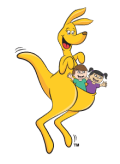GymbaROO kids are excelling academically, emotionally, in leadership roles and on the sporting field. Classes from birth – 5 yrs
All parents do it. We can’t help ourselves. We compare our baby’s milestones to those of others. It’s a way we reassure ourselves that our baby is doing well. But does comparing milestones really tell us anything about how well our baby is developing and how well our child will do in the future? Dr Jane Williams (PhD), one of Australia’s leading specialists in baby and child neuro-development and long-time GymbaROO and KindyROO Director lifts the lid on what key milestones tell us about a baby’s development and why it’s all about the journey, rather than a race.
How often have you heard the proud statement: “My baby walked at 10 months”? …and the anticipated reply, ‘Wow, really?… that’s amazing! She must be very clever!” Well, a warning here, I’m about to burst someone’s bubble!
How early a baby walks is not necessarily indicative of intelligence¹. Rather we need to look at the developmental journey the child made prior to the act of walking to determine if the child is indeed, going to achieve well². In particular, it’s the gross motor milestones of infancy that occur BEFORE walking that can predict school aged outcomes in cognitive development². Of course, if you attend GymbaROO / KindyROO or have watched our free online BabyROO series, this will not be news to you.
Babies who crawl on their tummy and then creep on their hands and knees prior to walking are more likely to achieve well at school as they develop a good working memory and the ability to process new information efficiently². Crawling and creeping: The benefits. Free GymbaROO video here.
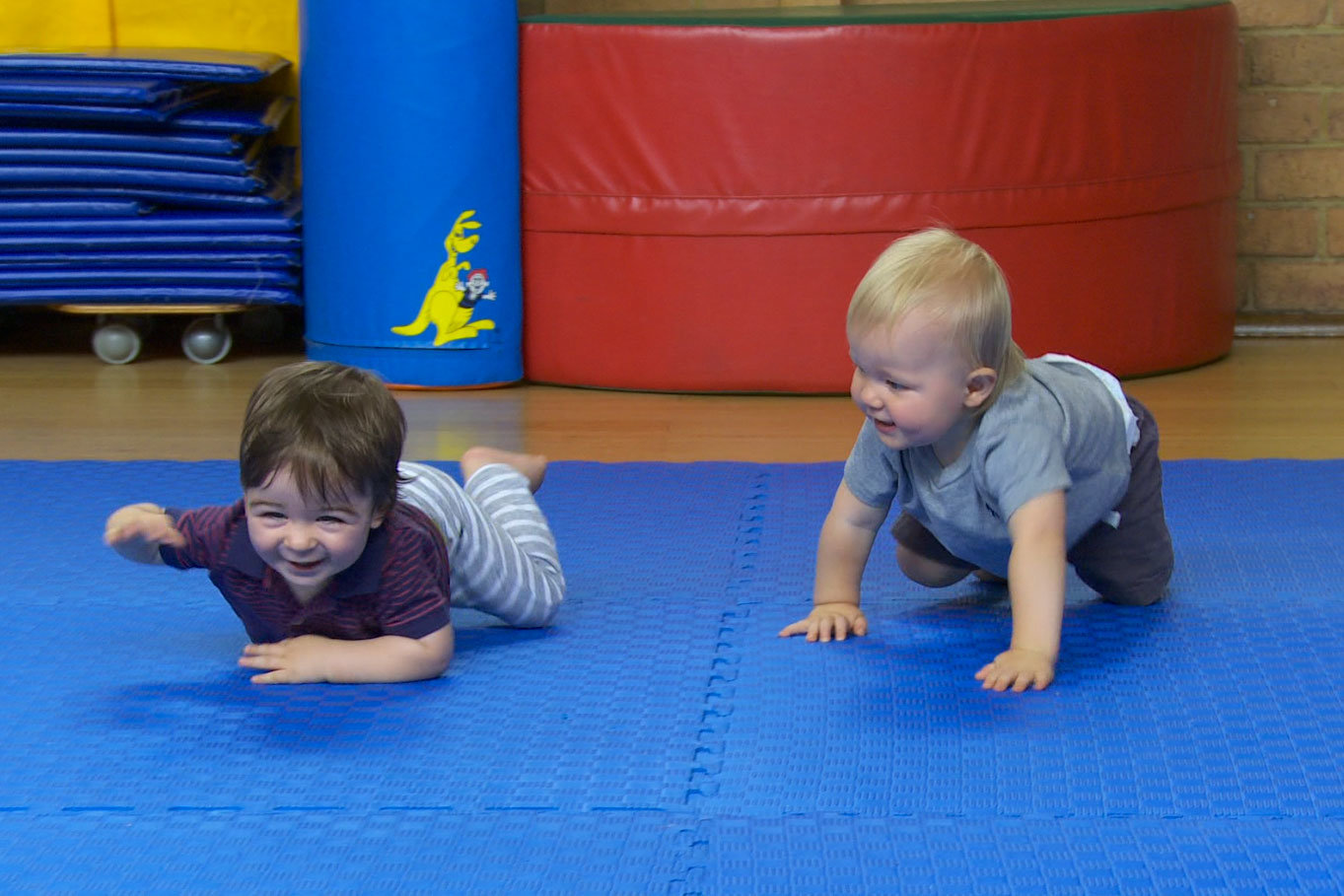
The act of walking in itself is not predictive, in fact, some children who are diagnosed at a later age with neurodevelopmental challenges often walk within ‘normal time frames’². It is suggested that the milestone journey prior to walking provides essential motor experiences that stimulate key areas of the brain important for later development, thinking and learning³.
What parents need to know about milestones
Developmental milestones are part of the screening process used by health professionals to determine if a baby and young child is ‘on track’ in their physical and neurological growth. While there are established ‘normal time frames’ within which milestones are expected to occur, it does not matter at what point within the time frame that milestones occur, only that they do.
Of course, you need to seek advice from your local health professional if your baby does not achieve milestones within these time frames.
Each individual milestone is, in itself, telling us something about a baby’s development. When a baby achieves a certain milestone, we know that particular, essential, neurological pathways are wired up and ready for the next milestone and level of development. These achievements happen in a step by step format. The brain works by building up the foundational structures first, like the foundations of a house. If the foundations are strong, then the house stays upright and strong – even in a cyclone. The brain is the same. The stronger the foundations, the more able and resilient the brain is for the rest of a child’s life.
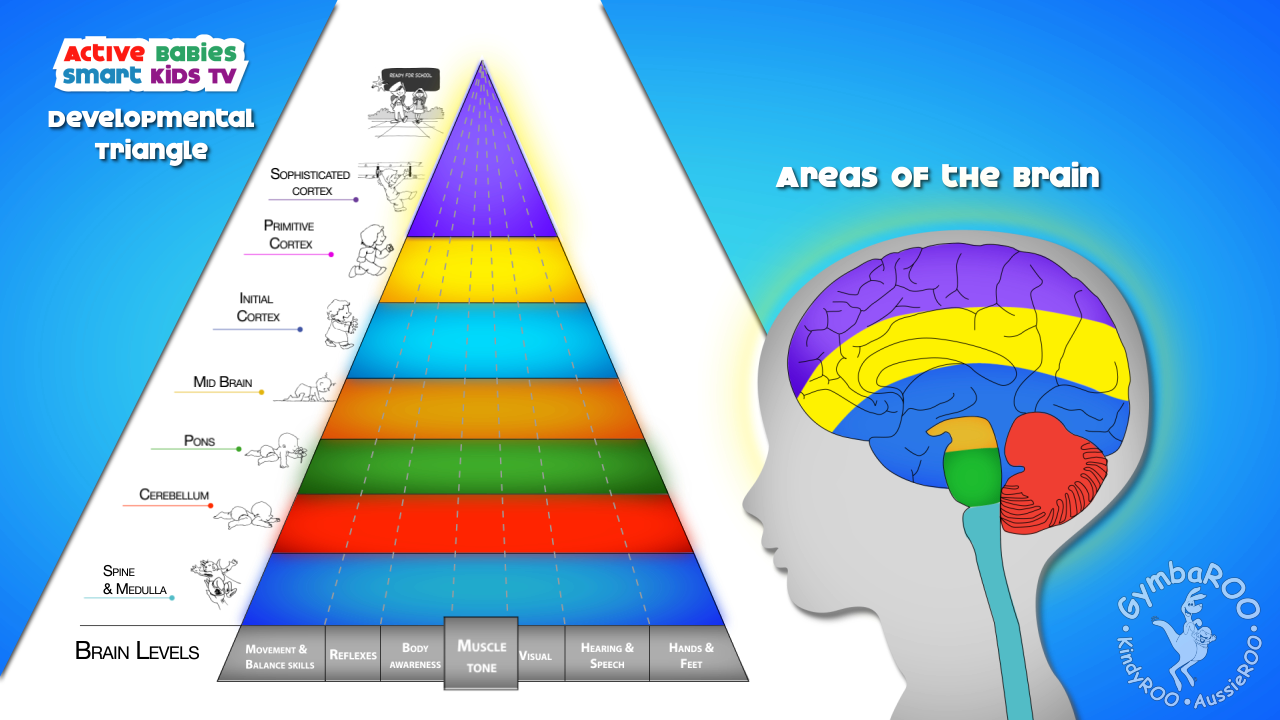
What’s even more important is that once your baby achieves a particular milestone, that you enable them every opportunity to practice that skill, until it becomes an automatic pattern of movement. This means that the brain has wired up the pathway for this milestone step and can move onto the next, more complex milestone step. This is how the foundations of the brain are solidly established. Don’t rush your baby onto the next step; give them time and the opportunity to practice.
When a baby is ‘walked’ early – either in a walker or by being held up by the hands, then they may walk independently from an early age, but unfortunately the complex neural pathways that form the foundation for more complex skills and thinking are not embedded. The wiring in the brain is very organised, and early experiences create connections between parts of the brain that are so very important for all areas of development and later, for thinking and learning at school. Read more here: Say “no” to baby walkers.
So parents, do not be in a hurry for your child to walk! Remember, it’s a journey, not a race, and those babies who achieve the important gross motor milestones BEFORE they walk will be those who have the best chance of developing to their full potential in school and in life.
What parents can do
- Opportunity and practice is how we learn all new skills, and how we keep up our skills, even as adults. Almost all early movement milestones are developed as a result of inbuilt, automatic reflex that stimulate movement in response to something happening in the environment. Gradually, as brain connections take place, a baby learns to control the movements and do them voluntarily. So when a newborn baby bats out randomly with her arm and hits a toy, she needs the opportunity to do it again and again until that pattern of movement is done by choice.
Free GymbaROO Tummy Time Video: Tummy time tips.
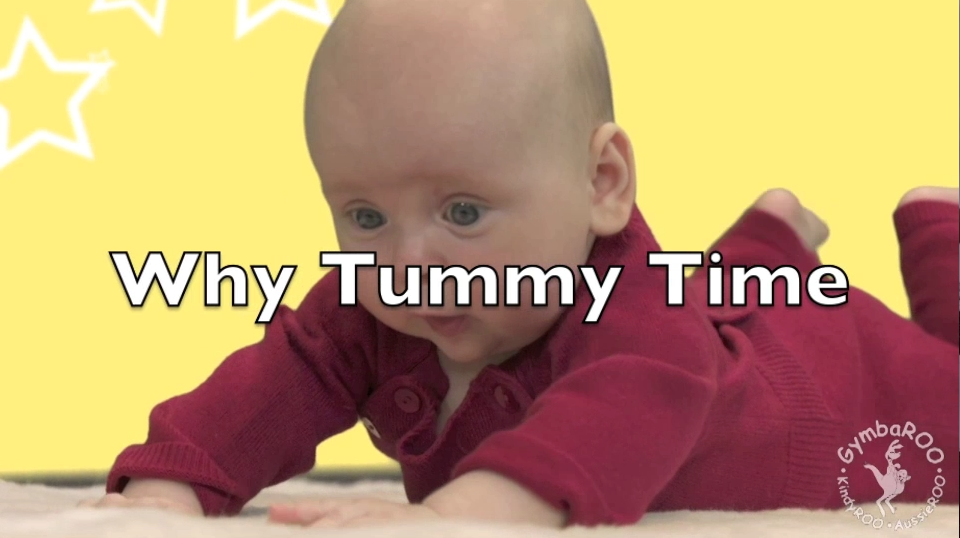
- Provide your baby with lots of time on their tummy; it’s the best way to develop the strength to move forward and to utilise the inbuilt reflexes that enable a baby to push forward. Lots of practice means they learn to do it by themselves and can develop the strength needed for the next, more complex milestone of getting up on all fours and creeping!
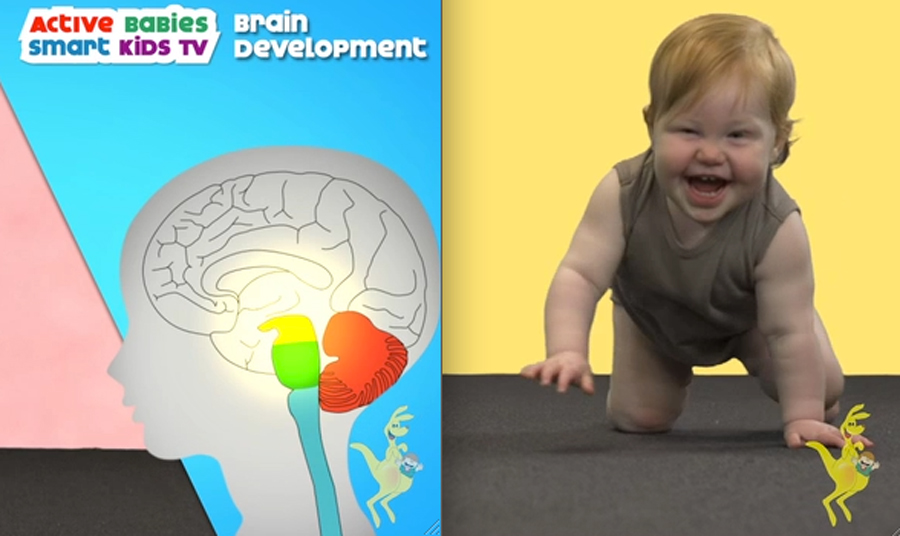
- Creeping/crawling babies needs lots of practice as well. Creeping is important for the development of the joints (especially wrist, elbow, knee, shoulder and hip) and the muscles of the upper body and leg along with core strength, which will help the baby be strong and stable when standing. It’s also assisting in the development of key brain pathways for sight and vision, hearing, touch, hand-eye coordination, the sense of balance (vestibular), motor planning, spatial awareness and timing – all foundational essentials for later learning. Free GymbaROO video: The benefits of crawling.
Dr Jane Williams (PhD, BMgt, RN(Paeds)) is the Research and Education General Manager for GymbaROO and KindyROO. She is one of Australia’s leading experts on baby and child development. More on Dr Williams here.
References: 1.Largo, R.H., Kundu, S. & Thun-Hohenstein, L. (1993). Early motor development and pre-term children. In A.F. Kalverboer, B. Hopkins & R. Geuze (Eds.), Motor development in early and later childhood: Longitudinal approaches (pp. 247 -266). Cambridge, England: Cambridge University Press. 2.Piek, J.P., Dawson, L., Smith, L.M. & Gibson, N. (2008). The role of early fine and gross motor development on later motor and cognitive ability. Human Movement Science, 27(5), 668 – 681. 3.Diamond, A. (2000). Close interrelationship of motor development and cognitive development and of the cerebellum and prefrontal cortex. Child Development, 71, 44-56.
GymbaROO for Babies from Birth: 12 FREE Online BabyROO Classes
Our free online series is taking the parenting world by storm! It is highly recommended by doctors, paediatricians, early childhood experts and the Maternal Child and Family Health Nurses Association. This series is being called: “The essential guide for parents.” Join the thousands of parents already playing with their babies from birth, in the best way for brain and body development and laying crucial foundations for future learning. What happens in the first year, not only matters, it matters a lot! Active Babies Smart Kids BabyROO series – Click here. (Australia and New Zealand only).
BabyROO GymbaROO KindyROO
Thousands of parents, babies and children are presently involved in our programs. GymbaROO kids are excelling academically, emotionally, in leadership roles and on the sporting field. Come join all the fun and learning! “GymbaROO – The best decision I ever made for my child.” Classes from birth – 5 years. Find your local GymbaROO.
You may also enjoy the following GymbaROO / BabyROO articles
All about GymbaROO’s free online series for parents and babies: Active Babies Smart Kids
Overstimulation. Is your baby at risk of sensory overload?
‘Baby Seat’ devices (like the Bumbo) and propping your baby to sit. Please avoid. This is why.

